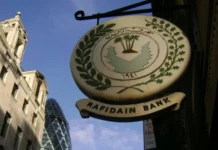Good Morning,
Ripple Unveils Urgent 4-Point Plan to Ignite UK Crypto Revolution
Ripple has issued a powerful call to action aimed at positioning the United Kingdom as a global leader in crypto innovation, unveiling a four-point regulatory strategy designed to unlock investment, expand financial access, and accelerate blockchain-driven modernization.
New Recommendations Set Stage for UK’s Explosive Crypto Power Shift
On June 18, Ripple convened key stakeholders at the London Policy Summit, co-hosted with the UK Centre for Blockchain Technology and Innovate Finance, to assess the UK’s fast-evolving digital asset policy landscape.
The summit spotlighted recent UK government initiatives, including:
- Chancellor Rachel Reeves’ April address supporting digital finance.
- HM Treasury’s draft legislation on crypto-assets.
- FCA consultations covering stablecoins, custody rules, and prudential oversight.
- Launch of the Digital Securities Sandbox and pilot for a digital UK government bond (DIGIT).
Ripple used the summit to deliver a sharp message: Now is the time to act—boldly and fast.
Ripple’s 4-Point Plan for UK Crypto Leadership
In a whitepaper released after the summit, Ripple laid out four key regulatory priorities critical to the UK’s ascent in the digital economy:
1. Accelerate Regulatory Framework Finalization
“The government and regulators must act at pace to develop a crypto-asset regulatory framework that drives investment and growth.”
Ripple emphasized that early movers in crypto regulation will reap long-term rewards in global competitiveness and capital inflows.
2. Ensure Global Standards Alignment
Ripple urged the UK to harmonize its rules with international frameworks, helping firms avoid conflicting obligations and maintain global interoperability.
3. Advance Stablecoin Regulation
Ripple pushed for the swift regulation of stablecoins, including legal pathways to allow overseas-issued stablecoins to circulate in the UK without local issuance requirements—a move that would increase liquidity and stimulate market innovation.
4. Remove Legal, Regulatory, and Tax Barriers
To solidify leadership in tokenization, Ripple proposed an integrated approach to overcome legacy barriers that hinder the tokenization of traditional assets like bonds and equities.
“The opportunity for the UK is huge. If the regulatory framework is designed correctly, it can facilitate innovation, enhance financial inclusion, and solidify the UK’s position as a competitive global financial centre.”
— Ripple
A Strategic Moment for UK Finance
Ripple underscored the transformative role of blockchain in modernizing payments, increasing transparency, and broadening access to financial services. With over 90% of major financial institutions engaged in crypto by 2024, the stakes for leadership are rising fast.
Summit participants echoed a growing consensus:
Rapid regulatory clarity is no longer optional—it’s essential to unlocking crypto’s full potential and ensuring the UK remains at the forefront of global finance.
@ Newshounds News™
Source: Bitcoin.com
~~~~~~~~~
South Korea’s Central Bank Open to Stablecoin Amid Cautious Forex Outlook
South Korea may soon join the growing list of nations backing fiat-pegged stablecoins. The Governor of the Bank of Korea signaled openness to the issuance of a won-based stablecoin, though he voiced concerns over its foreign exchange impact, particularly in relation to dollar-backed tokens.
Cautious Approval from the Central Bank
At a press conference covered by Reuters, Bank of Korea Governor Rhee Chang-yong stated that while he does not oppose the creation of a won-pegged stablecoin, there are critical risks tied to its adoption:
“Issuing won-based stablecoin could make it easier to exchange them with dollar stablecoin rather than working to reduce use of dollar stablecoin.”
Rhee warned this could inadvertently increase demand for dollar stablecoins and complicate forex management, undermining efforts to strengthen South Korea’s own currency reserves and monetary autonomy.
Shrinking Forex Reserves Add Pressure
The concern comes amid declining national reserves.
- At the end of December 2024, South Korea held $415.6 billion in forex reserves.
- By May 2025, that figure dropped to $404.6 billion—a $11 billion decrease in just six months.
This underscores the urgency in crafting a stablecoin policy that enhances domestic financial resilience without unintentionally driving capital back into U.S.-dollar-based instruments.
Democratic Party Pushes Pro-Stablecoin Legislation
Newly elected President Lee Jae-myung is advancing crypto reform as part of his campaign promises. On June 10, his Democratic Party introduced the Digital Asset Basic Act, a legislative proposal that would:
- Allow companies with at least $368,000 in equity capital to issue stablecoins.
- Require issuers to maintain sufficient reserves for redemptions.
- Mandate approval from the Financial Services Commission (FSC) prior to issuance.
This move aims to foster innovation, reduce U.S. dollar reliance, and offer a regulatory pathway for local stablecoin ecosystems to thrive.
Regulators Scrutinize Exchanges and Fees
South Korea’s FSC is currently probing local exchanges over the transaction fees they charge, aligning with President Lee’s pledge to lower trading costs for retail investors, especially younger users.
The regulatory scrutiny marks a shift toward a more competitive and transparent crypto exchange landscape, which could boost local investor confidence.
The Global Stablecoin Landscape Is Evolving
While U.S. dollar-backed stablecoins still dominate, with Tether (USDT) and Circle’s USDC leading at $156 billion and $61 billion respectively, non-USD options are starting to gain traction.
Circle’s euro-pegged EURC saw a 156% market cap increase since the start of 2025, now totaling $203 million. Momentum grew further after U.S. lawmakers backed the GENIUS Act, a key stablecoin regulatory bill, sending Circle’s stock sharply higher.
South Korea Eyes Its Own Path
As global stablecoin competition intensifies, South Korea’s measured but open stance on a won-based stablecoin could position the nation as a regional leader in digital finance, provided it carefully balances innovation with macroeconomic stability.
The next steps will likely involve regulatory fine-tuning, market feedback, and possible pilot programs to test the feasibility of stablecoin circulation under central bank oversight.
@ Newshounds News™
Source: Cointelegraph
~~~~~~~~~
Crypto ETF Approval Odds Surge to “90% or Higher,” Say Bloomberg Analysts
The approval of a broad array of U.S. crypto exchange-traded funds (ETFs) is now considered “almost certain,” according to top Bloomberg analysts. In a major shift in regulatory tone, the Securities and Exchange Commission (SEC) appears increasingly willing to approve spot ETFs for altcoins like XRP, Solana, Dogecoin, and Cardano, signaling expanding institutional access to digital assets.
Bloomberg: ETF Approval Odds at 90% or Higher
Analysts James Seyffart and Eric Balchunas raised their estimated approval odds to “90% or higher” on Friday, citing “very positive” engagement from the SEC in recent weeks.
“The tone and feedback from the SEC has shifted meaningfully,”
Seyffart said in a post on social media, emphasizing that this new posture marks a clear pro-crypto pivot at the regulatory agency.
One key reason for the rising optimism: The SEC appears to categorize many major cryptocurrencies — including XRP, Solana (SOL), Litecoin (LTC), Dogecoin (DOGE), and Cardano (ADA) — as commodities, not securities. This classification would place them largely outside of the SEC’s strictest enforcement scope, removing one of the biggest regulatory roadblocks.
Timeline Unclear, But Momentum Is Building
While approvals now seem likely, Seyffart cautioned that actual product launches may still take several months, potentially extending past October. The agency must still finalize reviews and respond to public comments on a number of ETF proposals — including XRP and SOL ETF filings by Franklin Templeton.
Bitcoin ETF Success Fuels Altcoin Hopes
The surge in altcoin ETF interest follows the historic success of spot Bitcoin ETFs, which have shattered records. BlackRock’s iShares Bitcoin Trust (IBIT) recently surpassed $70 billion in assets after just 341 days — making it the most successful ETF launch in U.S. history.
“There’s an arms race to replicate the Bitcoin ETF’s success,”
said Balchunas, pointing to strong demand for crypto exposure among institutional and retail investors alike.
However, not all crypto ETFs have performed equally. Ether ETFs, launched in July, have seen mixed reception, with Glassnode reporting in May that average ETH ETF investors were still “substantially underwater.”
Altcoins Rising, But Bitcoin Remains Dominant
While interest in altcoin ETFs is surging, analysts don’t expect any product to eclipse Bitcoin’s dominance in the near term. Still, the entry of top-tier asset managers like Franklin Templeton and the SEC’s willingness to open comment periods marks a turning point in mainstream crypto adoption.
With market watchers tracking every signal from Washington, these ETF developments could define the next chapter of crypto-finance integration in the United States.
@ Newshounds News™
Source: Cointelegraph
~~~~~~~~~
Seeds of Wisdom Team RV Currency Facts Youtube and Rumble
Newshound’s News Telegram Room Link
Follow the Roadmap
Follow the Timeline
Seeds of Wisdom Team™ Website






